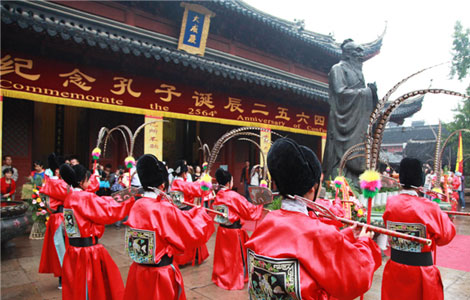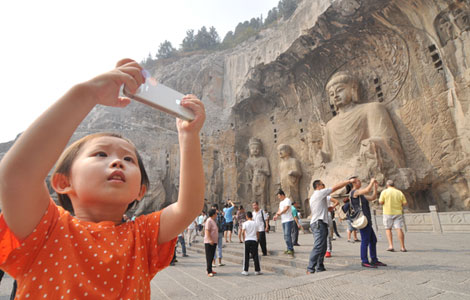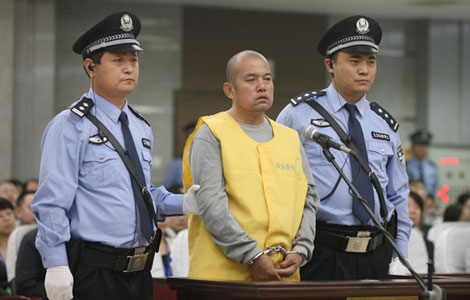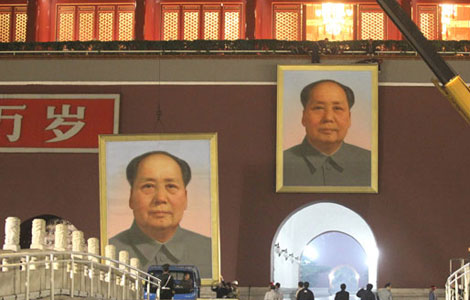

Many survivors of the 2008 Wenchuan earthquake have made a living commemorating the dead.
Thousands of residents in Sichuan province — especially farmers whose fields were destroyed — turned to selling souvenirs and giving tours of the rubble.
Five years later, the tourism sector's chaos has been brought to order, as have other facets of life, in places such as Yingxiu town.
Two years ago, the entrance of the Cave of 10,000 Dead — a mass grave created when authorities needed to dispose of more than 6,000 bodies before an epidemic broke out — swarmed with vendors selling flowers, funerary money and incense, as well as photos and DVDs for tourists to take home.
They are now gone — or at least largely replaced by licensed vendors in designated bamboo stalls out of sight of the Cave of 10,000 Dead.
"We can sell quake photos but not DVDs," 26-year-old vendor Yang Hong explains. "The government says the footage is too graphic and disrespectful to the dead."
However, he says many vendors still stock such videos. Customers must first ask for them, then sellers retrieve them from hiding.
Tours are now regulated, too. Feng Xueying says she started earning money last year by leading sightseers around the ruins of Xuankou Middle School, a large boulder cleaved from a mountain during the quake and the Cave of 10,000 Dead.
"I was a housewife before the disaster and opened a store afterward, but business wasn't so good," the 31-year-old says. "There were a lot of people giving tours, so I tried it. I made about 1,000 yuan ($160) a month running the shop but two to three times that as a guide.
"A lot of outsiders were curious. I was happy to show the changes we've undergone since 2008."
Soon after, the government required guides to pass exams, become licensed and work for authorized agencies.
Feng obtained a tour-guide permit that allows her to take people only to the school, boulder and graveyard. But she returned to her store after getting the license.
"I have more freedom running the shop," she says. "I'm my own boss. If I work for a company, I have to do what they say and go where they say, and when they say to.
"I also have to take care of my son," she says, adding that the boy studies in neighboring Dujiangyan city. "He's not a very good student. I must help him. I need to focus on him."
While the new regulations have cut into Feng's earnings, she supports them.
"There weren't any standards," she explains. "Different guides charged different prices, and there was no quality control. Now, there's a plan and order. Our tourism industry is improving, and that's good for the town."







